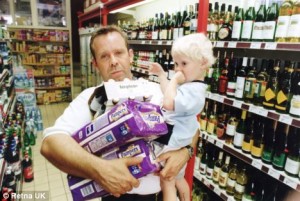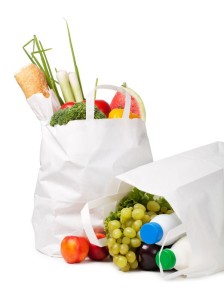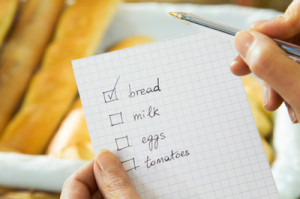Congratulations to me for probably my most eye-catching title yet! Beer and Diapers. I love it! So what’s it about? I recently heard a news story about a study that found that often, when men bought diapers, they also bought beer. I was busy with something else when I heard this, so I was a little distracted. I thought I heard them go on to say that because of this finding, stores were planning to place these two items on opposite ends of the store, hoping the men would find lots of other things to buy on the way from one to the other. I was very intrigued, but since I was only listening with half an ear, I tried to look it up online later. I couldn’t find this particular story, but I found something similar and continued reading. It turns out that this story is an urban legend, or myth, that is used as an illustration for data mining, where patterns are examined in order to be used in the future in practical applications. In the story I read, though, the beer and diapers were then placed near each other to make sure the men remembered to buy both.
What struck me is these two different approaches to getting into the shopper’s brain and trying to manipulate buying habits. If a guy is going in to buy diapers, stack the beer right next to them. He’ll see the beer and think “Oh, yeah, I can use some beer.” Impulse purchase right there. But if he is intentionally shopping for diapers and beer, and you put them on opposite sides of the store, think of how many other things he will be drawn to buy- other items he didn’t know/think he needed/wanted. Very clever marketing.
This made me think of the supermarkets and grocery stores where I shop, and how the placement of products influences what I buy. Please tell me I’m not the only one who comes home with the strangest grocery items! I can’t tell you how many times I went into a store to buy a few things and came out five (or ten!) bags later with cake mixes, pickles, and snacks that some grocery fairy must have snuck into my cart! And each time I vow I won’t fall for it the next time. It’s just that I was hungry, or the snack looked interesting, or yes, definitely, I was going to make that impressive dessert with the four thousand weird ingredients, so of course, I need to buy them. Who was I kidding?!? How does this happen? The stores analyze data from shopping records to learn our shopping habits, and then organize items in a way that will make us notice things we weren’t planning to buy when we walked in. The way to avoid falling for that is to always make a shopping list and make sure to stick to it, no matter how tempting the other things look, or how badly they beg to be taken home. Being a smart and careful shopper is important if you want to avoid spending money on items you don’t need or want. Hopefully, I’ll remember this next time I go to the store.






